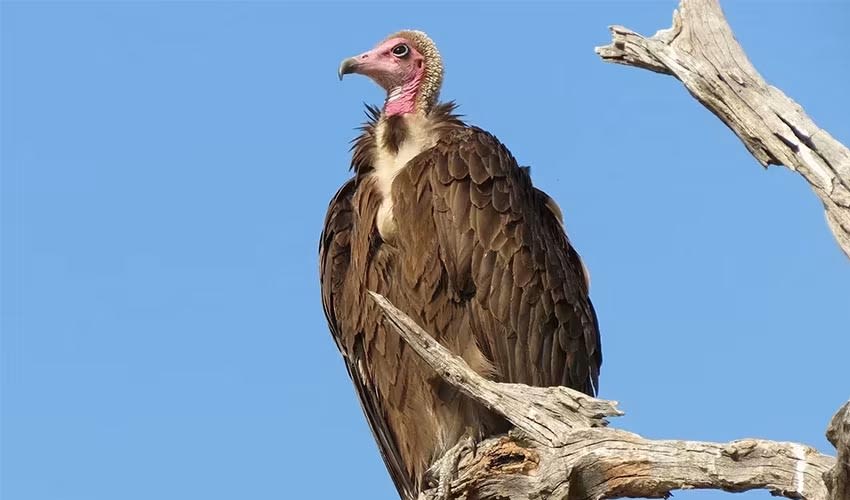Necrosyrtes – Hooded vulture
They are known to scavenge at rubbish dumps and around slaughterhouses, helping to dispose of animal byproducts and reducing potential health risks
The Hooded vulture is a bird of prey that performs a critical function in maintaining the health of its habitat. Endemic to Sub-Saharan Africa, it is the smallest of the region’s vultures, which perhaps contributes to its lesser-known status compared to its larger relatives.
The ‘hood’ of the Hooded Vulture, from which it gets its name, is a layer of short, downy feathers that covers its head and neck, creating a distinctive ‘hooded’ appearance. This, along with its bare, wrinkled head, not only gives it a unique, if somewhat intimidating appearance but also is highly functional. The lack of feathers on the head is an evolutionary adaptation to its scavenging lifestyle; it helps keep the bird clean as it delves into carcasses.
Contrary to popular belief, the Hooded Vulture has a relatively good sense of smell, which is unusual for Old World vultures. This sense allows them to detect carrion over large distances. Their hooked beaks are not as robust as those of larger scavengers, but they are perfectly adapted to tear into the softer parts of carcasses that other predators might leave behind. This makes the Hooded Vulture an important part of the cleanup crew of the wild, picking up after larger carnivores and other scavengers have had their fill.
The ecological role of the Hooded Vulture cannot be overstated. By consuming dead animals, they help to prevent the spread of diseases such as anthrax and botulism that can affect wildlife and sometimes even human populations. They are, therefore, not just scavengers but also sanitary workers of the natural world.
Despite their vital role, Hooded Vultures face significant threats. They are classified as Critically Endangered by the IUCN, with their numbers in rapid decline due to a range of human activities. Poisoning, both intentional (to control predator numbers or for use in traditional medicine) and unintentional (through lead ingestion from carcasses with bullet fragments), poses a significant risk.
Species in this genus
Hooded vulture
They are known to scavenge at rubbish dumps and around slaughterhouses, helping to dispose of animal byproducts and reducing potential health risks

